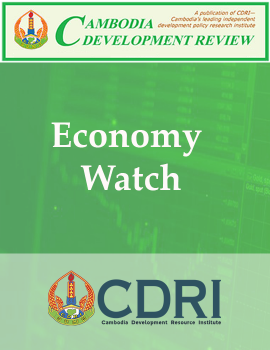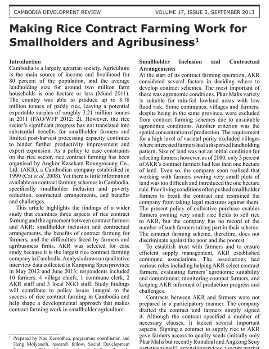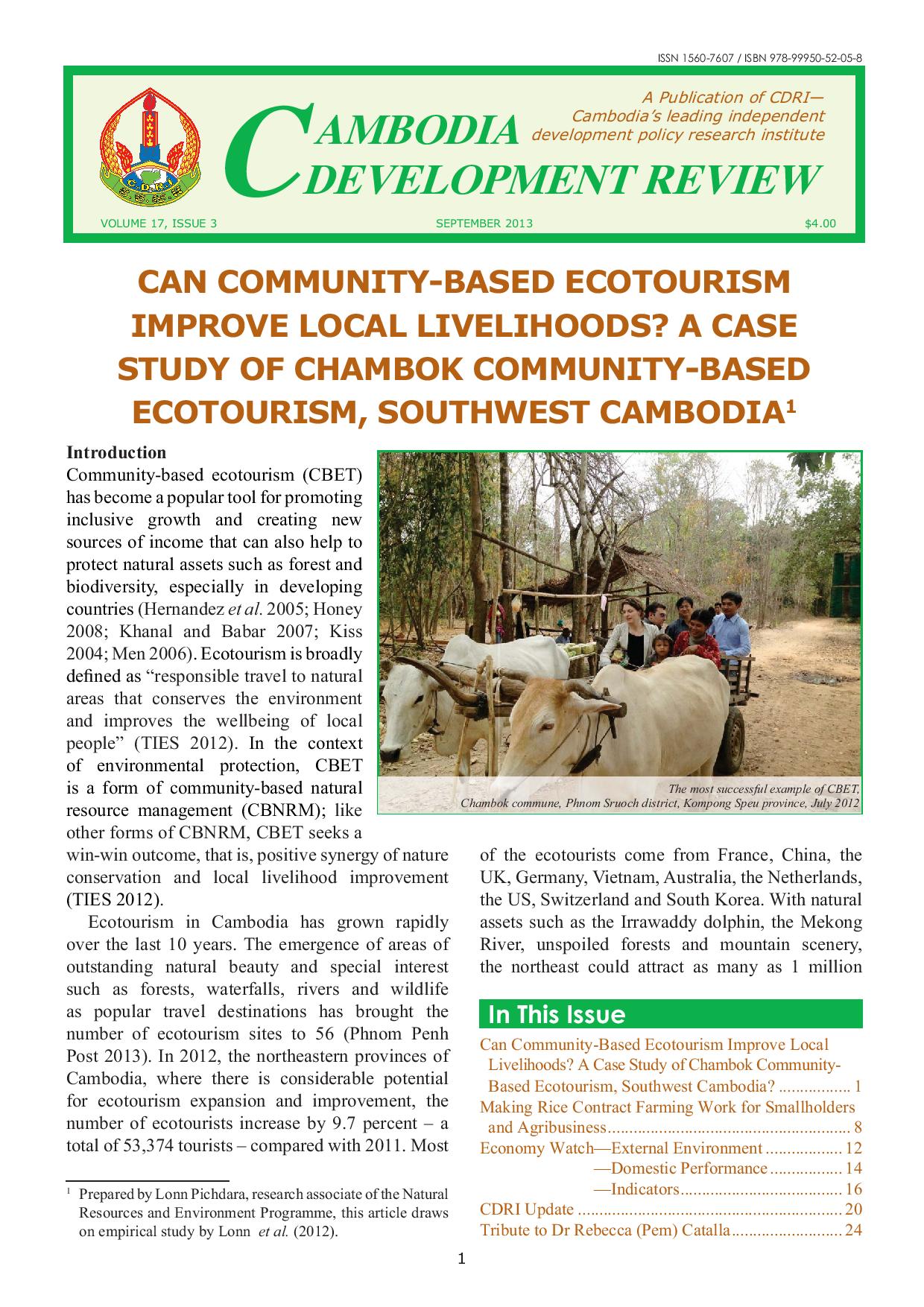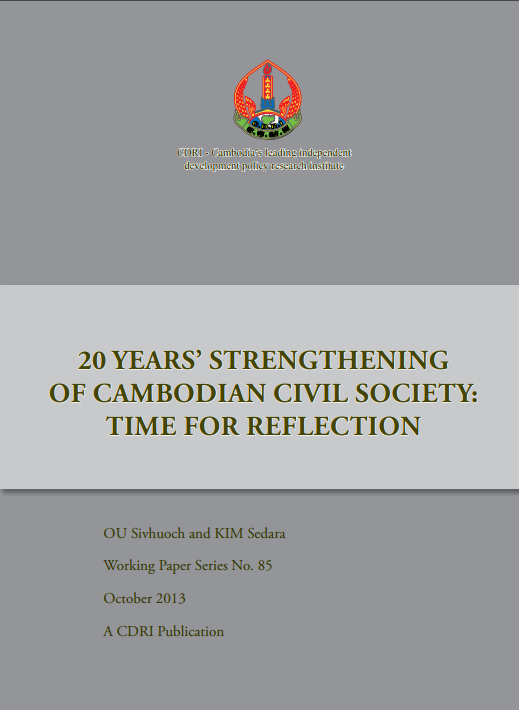
20 Years’ Strengthening of Cambodian Civil Society: Time for Reflection
In the 1980s and 1990s a large number of NGOs emerged in Cambodia, primarily in response to donors’ agendas on strengthening civil society to curb repressive developing country governments and support a broad democratisation process. Over the last 20 years, donor money has been concentrated on funding a small group of NGOs, mostly located in the co...
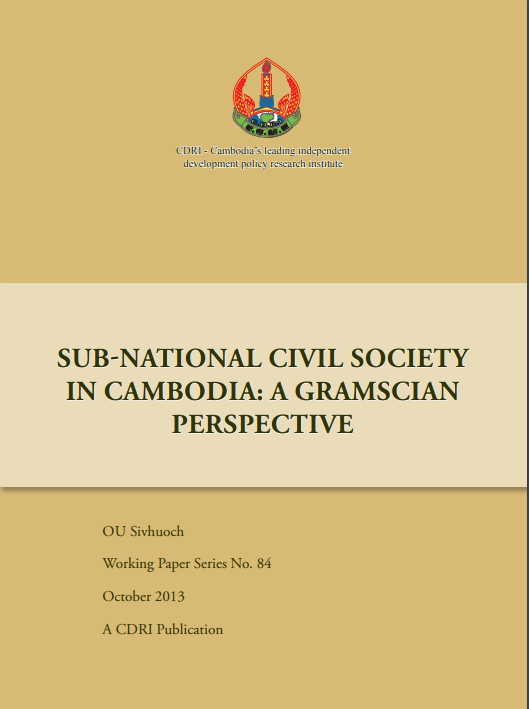
Sub-National Civil Society in Cambodia: A Gramscian Perspective
Several authors (particularly Laundau 2008; Henke 2011) label Cambodian national civil society as a sphere that is neither apolitical nor autonomous, but influenced or co-opted by and blurred with the state. They posit that a Gramscian perspective is relevant to interpreting civil society in the country. This article suggests that the application o...
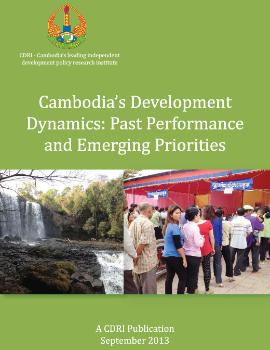
Cambodia’s Development Dynamics: Past Performance and Emerging Priorities
CDRI releases its new publication, Cambodia’s Development Dynamics: Past Performance and Emerging Priorities. This study will be useful to a wide audience interested in Cambodia’s socioeconomic and political development – policymakers, the research community, development partners, the private sector, and non-government organisations. The Repor...
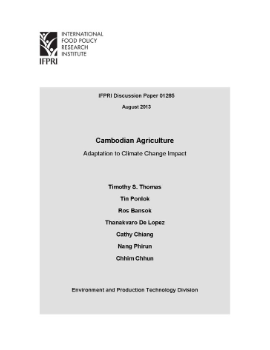
Cambodian Agriculture: Adaptation to Climate Change Impact
Cambodia has been identified as one of the most vulnerable countries to climate change, given the predicted changes in temperature and precipitation, the share of labor in agriculture, and the country’s low adaptive capacity due to widespread poverty. In this study, we use climate data from four general circulation models (GCMs) to evaluate the imp...
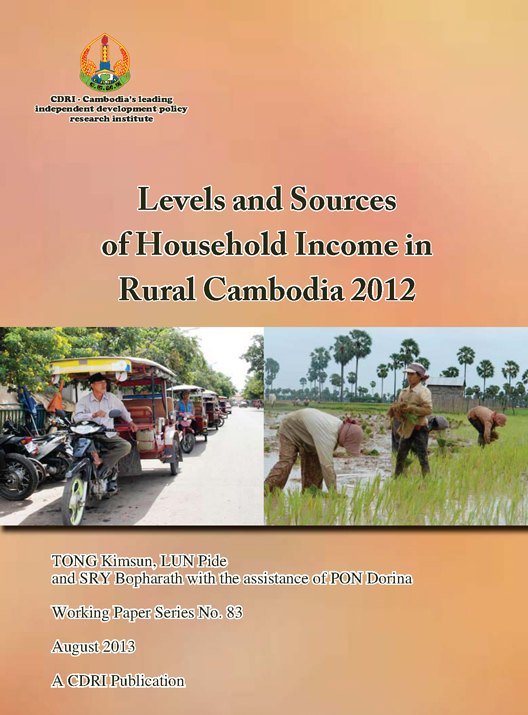
Levels and Sources of Household Income in Rural Cambodia 2012
This study investigates the levels and sources of household income in rural Cambodia from 2004 to 2012, using data from the Cambodia Socio-Economic Survey and a 2012 rural household survey conducted by CDRI. It reveals that rural households primarily depend on agriculture, though its share in total income declined over time, while salaries and...
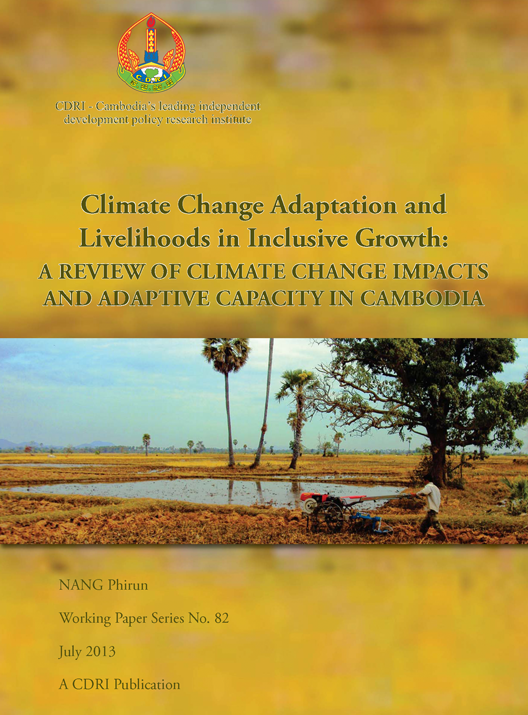
Climate Change Adaptation and Livelihoods in Inclusive Growth: A Review of Climate Change Impacts and Adaptive Capacity in Cambodia
This review outlines existing knowledge (context-specific and localised) of climate change impacts, vulnerability and adaptation, assesses the limitations of different frameworks and approaches used by various initiatives in Cambodia, and identifies knowledge gaps for future research. It explores the impacts of climate change on livelihoods through...
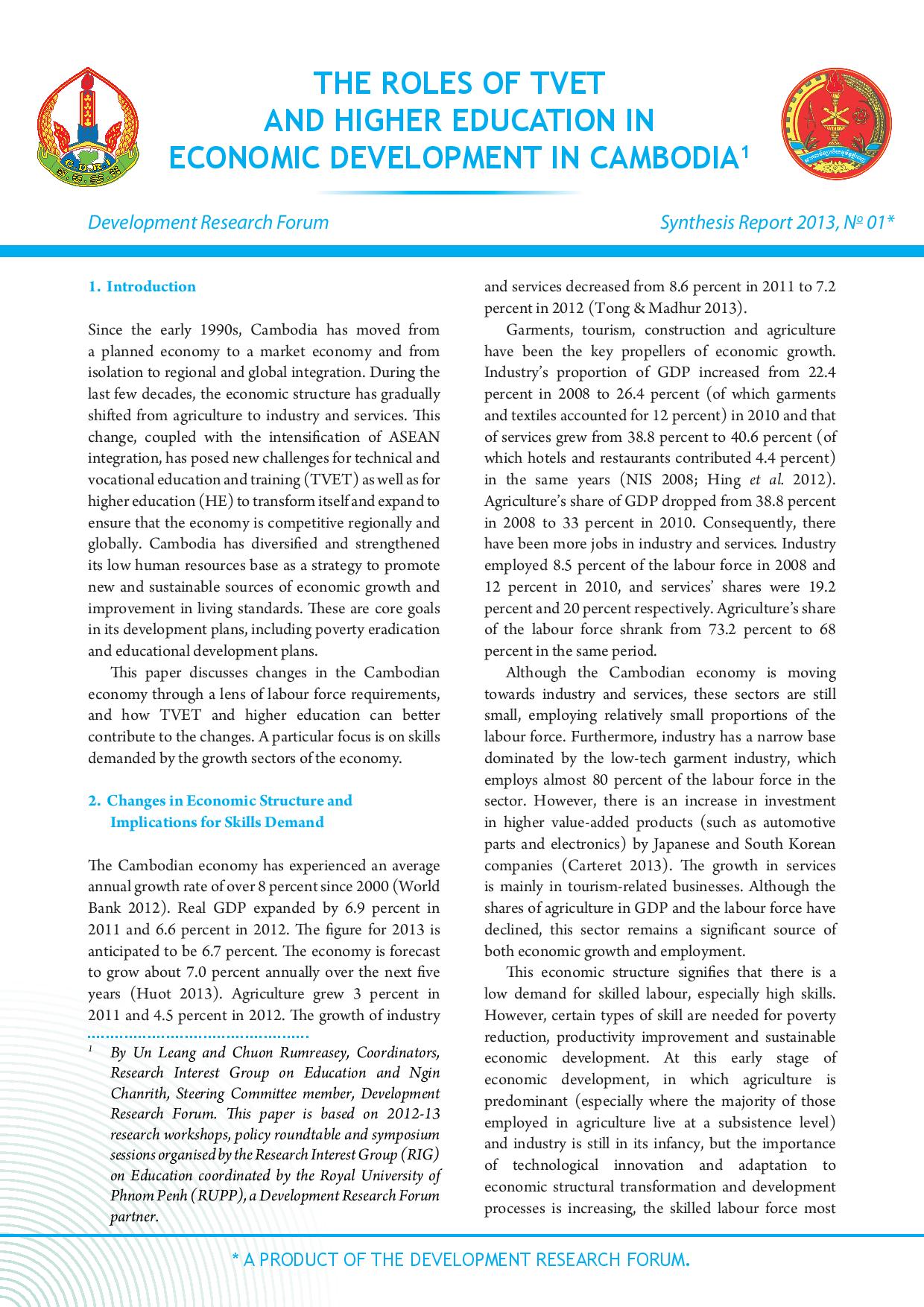
The Roles of TVET and Higher Education in Economic Development in Cambodia
During the last decades, Cambodia’s economic structure has gradually shifted from agriculture to industry and services. This change, coupled with deepened ASEAN integration, has posed new challenges for transforming and technical and vocational education and training (TVET) and higher education to ensure that the economy is competitive regionally a...

